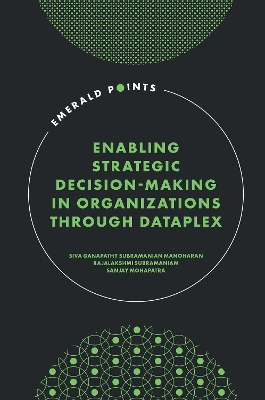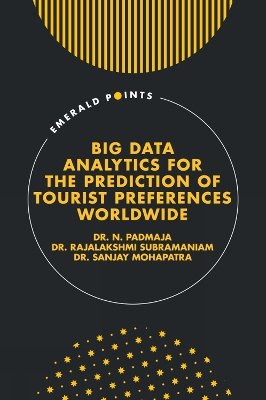Emerald Points
2 total works
Enabling Strategic Decision-Making in Organizations through Dataplex
by Siva Ganapathy, Subramanian Manoharan, Rajalakshmi Subramaniam, and Sanjay Mohapatra
Managing big data and data analytics poses unique challenges to many organisations. The effective use of such data is essential to planning business strategies and ensuring future corporate success. Organizations need to know how best to capitalise on the information that they have access to.
Enabling Strategic Decision-Making in Organizations through Dataplex breaks down the role of data in strategic decision making, examining the organizational benefits but also utilising real-world examples of limitations and challenges and how these can be overcome. Dataplex allows for the central management of all data resources in the cloud, removing data silos while also maintaining ethical considerations and policies – the intellectual fabric of data provides a path to centrally monitor, manage and rule the data.
The use of case studies, frameworks and applied models makes this text applicable to data practitioners, managers and strategic planners, as well as researchers focusing on problem solving at the organizational level.
Big Data Analytics for the Prediction of Tourist Preferences Worldwide
by N. Padmaja, Rajalakshmi Subramaniam, and Sanjay Mohapatra
Big Data analytics and machine learning are being adopted in a range of industries – but how can these technologies be utilised and what can they offer to the tourism industry? In the process of their journeys and in their decision-making processes, people who travel contribute to the generation of a huge flow of data; all this information is a potential base for creating smart destinations and improving tourism organizations’ potential to customize their products and service offerings.
The real execution of such inventive forms of data-driven value generation in tourism continues to be more restricted to the theory or used in a few exceptional cases. Big data and machine learning techniques in tourism persists as an unclear concept and a subject of investigation that necessitates closer analysis from an extensive range of field and research methods. Big Data Analytics for the Prediction of Tourist Preferences Worldwide tackles this challenge, exploring the benefits, importance and demonstrates how Big Data can be applied in predicting tourist preferences and delivering tourism services in a customer friendly manner.
The authors provide theoretical and experiential contributions designed to see a wider adoption of these technologies in the tourism industry.

